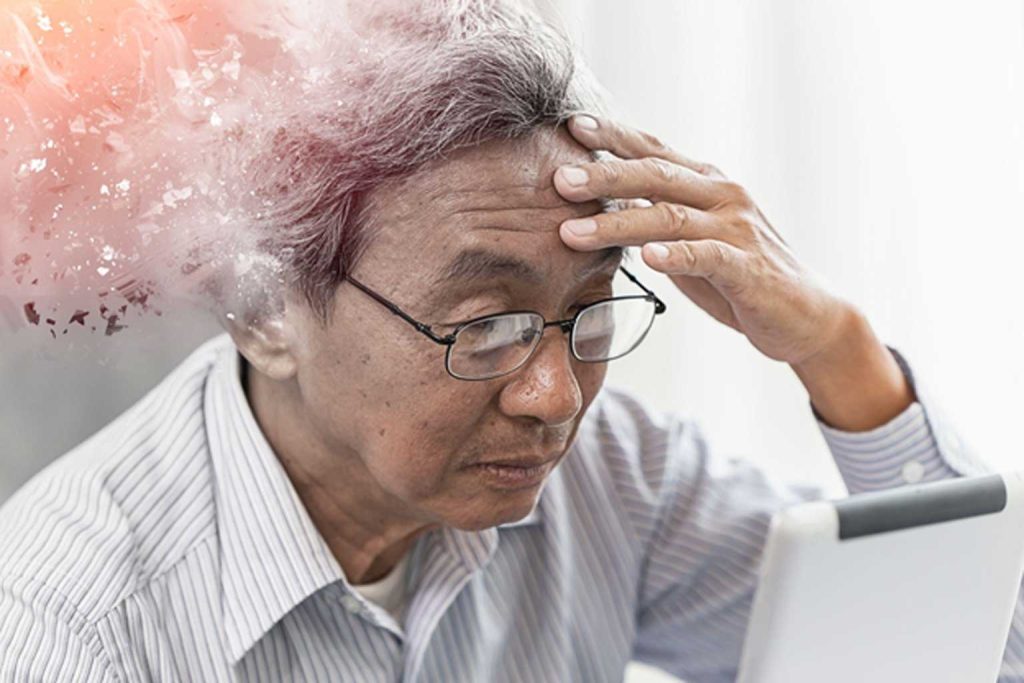November is National Alzheimer’s Disease Awareness Month in the United States, a time meant to bring awareness to the harmful effects of the disease and the research being done to find more effective treatments and a cure. The month also serves as an opportunity to honor the over 6 million Americans currently suffering from the condition, as well as the many family caretakers who are sacrificing to give their loved ones the care they need.
Alzheimer’s disease is an advanced kind of dementia that affects brain function and daily life. Plaque buildup and cell death in the brain cause a neurodegenerative condition that negatively affects memory and processing and worsens progressively over time. There is currently no cure for the disease, but treatments are proving to be effective at slowing the advancement of symptoms and improving the quality of life for affected individuals. Onset can be slow over time or rapid, and it usually affects people aged 65 years or older.
What Causes Alzheimer’s Disease?
There is no one identified cause of Alzheimer’s disease, and anyone can get it. However, certain individuals are at higher risk for Alzheimer’s due to genetics or family history. Genetic testing can be used to determine whether or not you have these genes; however, their presence is still only an indicator of elevated risk and not an exact determinant for whether or not you will experience Alzheimer’s.
Healthy lifestyle choices such as getting regular exercise, eating a varied and nutritious diet, and keeping your brain active can reduce your risk of the disease.
What are the Symptoms of Alzheimer’s Disease?
Forgetfulness and distraction are things that everyone experiences from time to time, but individuals with Alzheimer’s disease experience these and other symptoms on a protracted basis, worsening over time, that interfere with living daily life. The following are six common symptoms experienced by individuals suffering from Alzheimer’s:
1. Memory loss. This symptom is most commonly associated with Alzheimer’s. This may first present as an individual repeating questions or conversation topics, losing belongings, or forgetting appointments.
2. Difficulty speaking or writing. Communication can be difficult for individuals with advanced Alzheimer’s. The parts of the brain responsible for speaking and writing break down, resulting in momentary lapses in memory for common words, misspelled words, and grammatical or other errors.
3. Trouble with routine tasks. Tasks that were once simple, such as getting dressed or operating a microwave, can become difficult for senior citizens affected by Alzheimer’s disease. This is especially true for tasks that involve multiple steps or decision-making capabilities.
4. Social isolation. Individuals suffering from Alzheimer’s disease may have difficulty recognizing friends and loved ones or withdraw completely. At some stages, paranoia may cause them to become fearful of people they are unable to recognize or remember.
5. Disorientation. People with Alzheimer’s can easily become disoriented and lost while walking or driving, which can pose a safety risk. In more extreme cases, a patient may believe they’re in a different time or location entirely.
6. Mood changes. Alzheimer’s can cause changes in mood and personality. In many individuals, this might present as fear, irritability, anger, or depression. In others, it may look like a loss of interest in activities they once enjoyed or even socially inappropriate behavior.
Recognizing Alzheimer’s Disease Signs & Getting Help
If you notice your senior loved one struggling with Alzheimer’s disease symptoms like trouble with routine tasks or memory loss, speak with their doctor. A doctor can conduct tests to find out if Alzheimer’s disease is the cause of their symptoms. For dependable Alzheimer’s care, choose Visiting Angels.
The professional caregivers at Visiting Angels have been providing compassionate senior home care services since 1998. Based in St. George, our team serves families throughout southern Utah, allowing elderly residents to remain in their homes safely and while receiving top-quality care. Contact us for more information.



